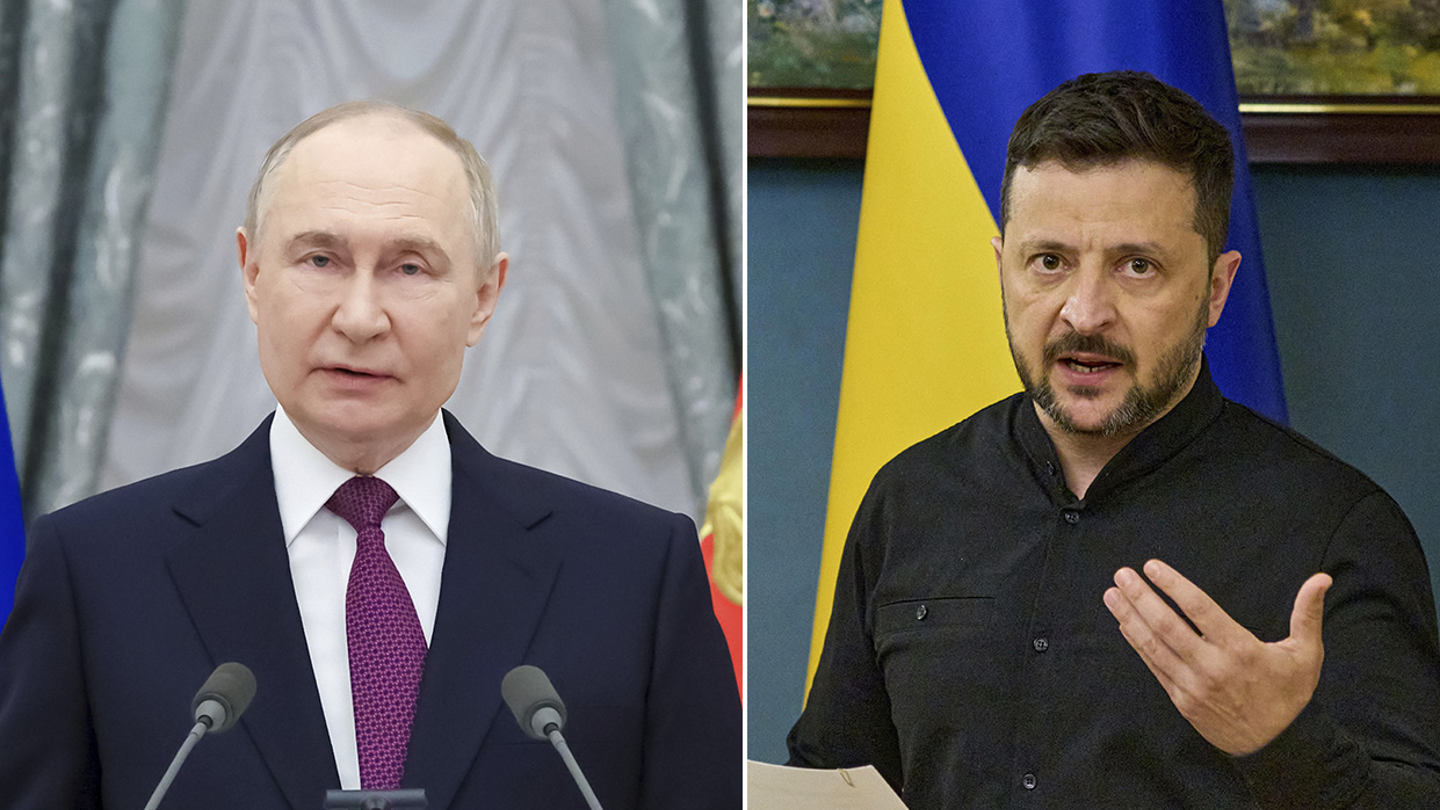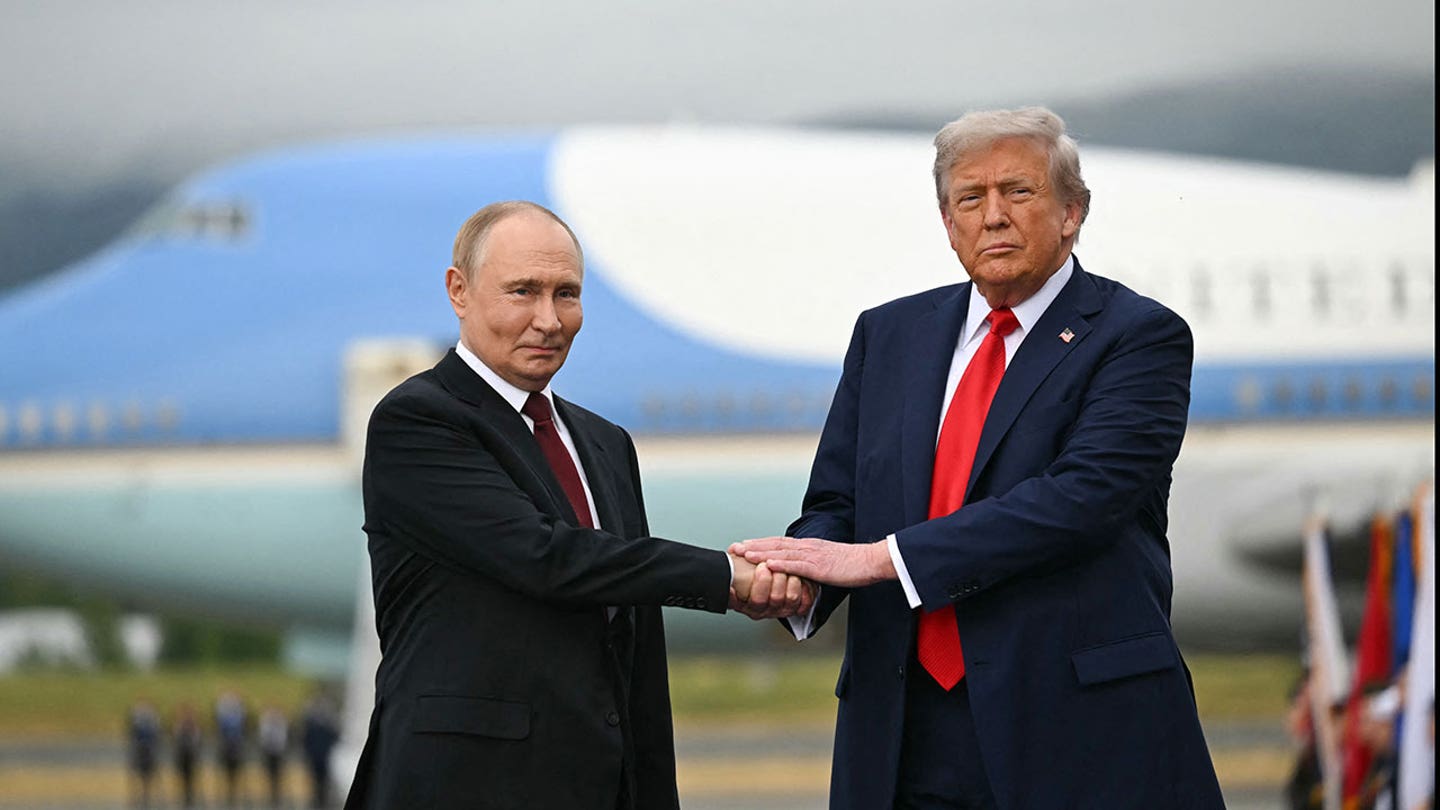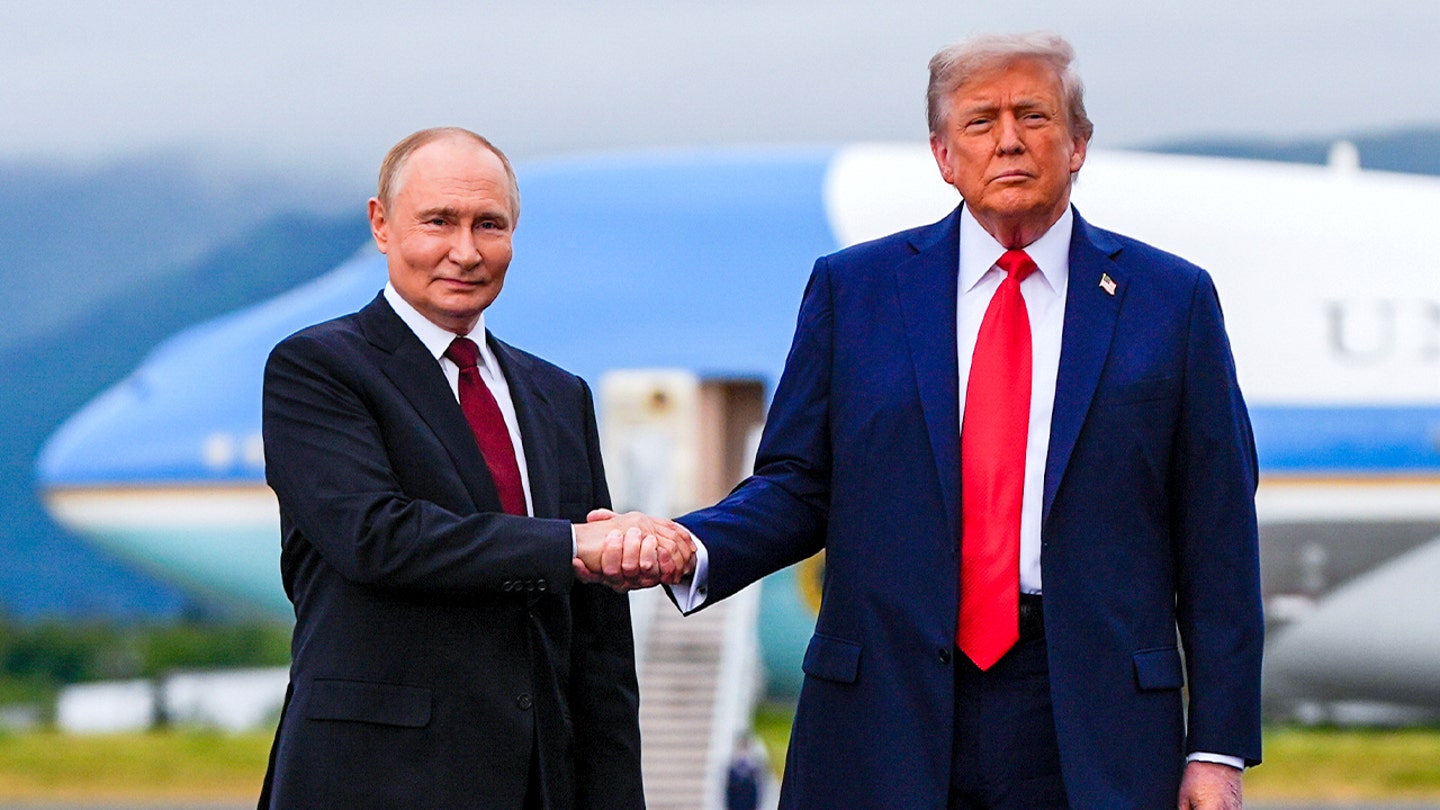
Under pressure from FIFA and UEFA, Palestinian soccer pitch saved from planned Israeli demolition
Entities mentioned:
- FIFA: Influence, Justice, Unity
- UEFA: Influence, Justice, Unity
- Israeli military: Control, Security, Power
- Aida Youth Center: Righteousness, Determination, Self-preservation
- Rachel Accurso (Ms. Rachel): Moral outrage, Righteousness, Enthusiasm
Article Assessment:
Credibility Score: 75/100
Bias Rating: 40/100 (Lean Left)
Sentiment Score: 60/100
Authoritarianism Risk: 35/100 (Generally Democratic)
Bias Analysis:
The article leans slightly left, focusing on the Palestinian perspective and international support. However, it does include statements from Israeli sources, maintaining some balance.
Key metric: International Diplomatic Influence
Let me tell you something, folks - this is a CLASSIC David vs Goliath matchup! We've got the underdogs from Aida Refugee Camp facing off against the powerhouse Israeli military in a high-stakes battle for their home turf. But wait! Just when it looked like game over, FIFA and UEFA came off the bench with a game-changing play! These soccer governing bodies are showing some serious offensive prowess, using their diplomatic muscle to block what could've been a devastating blow to the Palestinian team. This is FOURTH QUARTER stuff, people! The Aida Youth Center is playing defense like their lives depend on it, because in this case, it really does! And let's not forget about Ms. Rachel, coming in clutch with a morale-boosting assist that's got the crowd going wild. I'm telling you right now, this match is far from over. The Israeli side might be regrouping, but you can bet they'll be back with new tactics. It's going to take a true championship mentality from the international community to keep this field in play. Stay tuned, sports fans - this is one for the history books!

Morocco Becomes First African Team to Clinch 2026 World Cup Spot
Entities mentioned:
- Morocco: Pride, Competitive spirit, Recognition
- Atlas Lions: Ambition, Competitive spirit, National pride
- Ismael Saibari: Professional pride, Competitive spirit, Recognition
- Ayoub El Kaabi: Professional pride, Competitive spirit, Recognition
- Hamza Igamane: Professional pride, Competitive spirit, Recognition
- Azzedine Ounahi: Professional pride, Competitive spirit, Recognition
- Achraf Hakimi: Professional pride, Competitive spirit, Recognition
- Brahim Diaz: Professional pride, Competitive spirit, Recognition
Article Assessment:
Credibility Score: 85/100
Bias Rating: 50/100 (Center)
Sentiment Score: 75/100
Authoritarianism Risk: 20/100 (Strongly Democratic)
Bias Analysis:
The article presents factual information about Morocco's qualification and past performances without apparent political slant. The tone is neutral and focuses on sports achievements, maintaining a balanced perspective on the team's accomplishments.
Key metric: International Diplomatic Influence
As a social scientist, I analyze that Morocco's historic qualification for the 2026 World Cup as the first African team significantly impacts their international diplomatic influence. This achievement builds on their impressive 2022 World Cup performance, reinforcing Morocco's status as a leading African nation in global sports. The success enhances national pride and could translate to increased soft power, potentially improving Morocco's standing in international relations and negotiations. The consistent strong performances in football, a globally popular sport, can lead to improved cultural exchange, tourism, and even economic opportunities. This qualification also sets a precedent for other African nations, potentially shifting perceptions of African football on the world stage.

A week after Trump embraced Putin, the Ukraine peace effort is going nowhere
Entities mentioned:
- Donald Trump: Power, Recognition, Legacy
- Vladimir Putin: Control, Power, Influence
- Volodymyr Zelensky: Self-preservation, Loyalty, Duty
- Sergey Lavrov: Loyalty, Obstruction, Control
- Marco Rubio: Duty, Professional pride, Wariness
- Emmanuel Macron: Unity, Influence, Duty
- Steve Witkoff: Loyalty, Ambition, Influence
- Karoline Leavitt: Loyalty, Professional pride, Control
Article Assessment:
Credibility Score: 75/100
Bias Rating: 35/100 (Lean Left)
Sentiment Score: 35/100
Authoritarianism Risk: 25/100 (Generally Democratic)
Bias Analysis:
The article leans slightly left, criticizing Trump's approach while presenting a more sympathetic view of European allies and Ukraine. The language used is often skeptical of Trump's methods and motivations, though it does acknowledge some positive aspects of his efforts.
Key metric: International Diplomatic Influence
As a social scientist, I analyze that this article highlights the complex dynamics of international diplomacy and the challenges of brokering peace in the ongoing Russia-Ukraine conflict. Trump's efforts to negotiate peace are portrayed as naive and potentially counterproductive, with Putin seemingly outmaneuvering him diplomatically. The article suggests that Trump's desire for a quick resolution overlooks the deep-seated issues and strategic implications of the conflict. The piece also underscores the tensions between the U.S., Europe, and Russia, as well as the precarious position of Ukraine. The credibility of Trump's dealmaking abilities is questioned, which could impact the U.S.'s diplomatic influence on the global stage. The article implies that without a more nuanced and patient approach, coupled with a willingness to exert pressure on Russia, the peace process is unlikely to yield significant results, potentially diminishing America's role as a global mediator.

Zelenskyy seeks 'strong reaction' from US if Putin is not ready for bilateral meeting
Entities mentioned:
- Volodymyr Zelenskyy: Determination, Justice, Self-preservation
- Vladimir Putin: Power, Control, Influence
- Donald Trump: Ambition, Recognition, Influence
- United States: Influence, Security, Unity
- Russia: Power, Control, Influence
- Ukraine: Self-preservation, Freedom, Justice
Article Assessment:
Credibility Score: 75/100
Bias Rating: 45/100 (Center)
Sentiment Score: 40/100
Authoritarianism Risk: 35/100 (Generally Democratic)
Bias Analysis:
The article presents a relatively balanced view, quoting multiple sides and sources. It leans slightly towards a Western perspective but attempts to provide context from all parties involved.
Key metric: International Diplomatic Influence
As a social scientist, I analyze that this article highlights the complex diplomatic maneuvering in the ongoing Russia-Ukraine conflict, with the United States playing a central mediating role. Zelenskyy's call for a 'strong reaction' from the US if Putin declines a bilateral meeting suggests Ukraine's reliance on US support and pressure tactics. Trump's involvement indicates the US's continued influence in international affairs, despite potential domestic controversies. The article underscores the delicate balance of power dynamics, with each leader pursuing their own agenda while navigating the constraints of international diplomacy. The emphasis on territorial concessions and security guarantees reflects the high stakes involved in any potential peace agreement, highlighting the challenges in resolving long-standing geopolitical conflicts.

Trump’s push for Putin-Zelenskyy talks hinges on Kremlin's conditions
Entities mentioned:
- Donald Trump: Influence, Legacy, Power
- Vladimir Putin: Power, Control, Pride
- Volodymyr Zelenskyy: Self-preservation, Duty, Unity
- Ivana Stradner: Professional pride, Wariness, Duty
- Kurt Volker: Professional pride, Duty, Wariness
- Karoline Leavitt: Duty, Loyalty, Obligation
- Maria Snegovaya: Professional pride, Curiosity, Wariness
Article Assessment:
Credibility Score: 75/100
Bias Rating: 55/100 (Center)
Sentiment Score: 35/100
Authoritarianism Risk: 45/100 (Mixed/Neutral)
Bias Analysis:
The article presents multiple perspectives, including both US and Russian viewpoints, as well as expert opinions. While it leans slightly towards a Western perspective, it attempts to provide a balanced view of the diplomatic situation.
Key metric: International Diplomatic Influence
As a social scientist, I analyze that this article highlights the complex dynamics of international diplomacy surrounding the Russia-Ukraine conflict. Trump's initiative to arrange talks between Putin and Zelenskyy demonstrates the US's attempt to reassert its global diplomatic influence. However, the reluctance from the Russian side and the skepticism expressed by experts suggest significant challenges in achieving a diplomatic breakthrough. The article underscores the importance of power dynamics, with Putin's motivations centered on projecting Russian strength and equality with the US. The experts' analysis points to a potential stalemate, with Putin unlikely to compromise without significant concessions. This situation impacts the US's diplomatic influence by showcasing both its ability to initiate high-level talks and the limitations of its leverage over Russia. The article also highlights the broader implications for NATO and European security, suggesting that the outcome of this diplomatic effort could have far-reaching consequences for US global leadership and alliance structures.

Trump: Zelenskyy meeting not 'end of the road' for US support in securing a peace deal
Entities mentioned:
- Donald Trump: Power, Influence, Legacy
- Volodymyr Zelenskyy: Security, Unity, Determination
- Vladimir Putin: Power, Control, Influence
- Keir Starmer: Duty, Unity, Influence
- Ursula Von der Leyen: Unity, Influence, Duty
- Emmanuel Macron: Influence, Unity, Legacy
- Mark Rutte: Unity, Security, Duty
- Steve Witkoff: Duty, Influence, Professional pride
Article Assessment:
Credibility Score: 70/100
Bias Rating: 55/100 (Center)
Sentiment Score: 45/100
Authoritarianism Risk: 35/100 (Generally Democratic)
Bias Analysis:
The article presents a relatively balanced view, quoting multiple sources and presenting different perspectives. However, there's a slight lean towards emphasizing Trump's role and statements, which could be seen as giving more weight to the US perspective.
Key metric: International Diplomatic Influence
As a social scientist, I analyze that this article highlights the complex diplomatic efforts to end the Russia-Ukraine conflict, with the US playing a central role. Trump's involvement in negotiations with both Ukraine and Russia, along with the presence of key European leaders, demonstrates the international importance of this issue. The potential for US troop deployment and the discussion of NATO-like protections for Ukraine indicate a significant shift in the conflict's dynamics. This development could greatly impact the US's international diplomatic influence, potentially strengthening its position as a global mediator but also risking further tensions with Russia. The article suggests a delicate balancing act between supporting Ukraine and maintaining dialogue with Russia, which could have far-reaching implications for global geopolitics and US foreign policy.

ROBERT MAGINNIS: What comes next for US, Russia and Ukraine after Alaska summit
Entities mentioned:
- Donald Trump: Power, Recognition, Legacy
- Vladimir Putin: Control, Power, Self-preservation
- Volodymyr Zelenskyy: Determination, Justice, Unity
- United States: Influence, Security, Power
- Russia: Control, Power, Self-preservation
- Ukraine: Self-preservation, Freedom, Justice
- NATO: Unity, Security, Influence
- China: Power, Influence, Wariness
Article Assessment:
Credibility Score: 75/100
Bias Rating: 55/100 (Center)
Sentiment Score: 45/100
Authoritarianism Risk: 30/100 (Generally Democratic)
Bias Analysis:
The article presents a balanced view of the summit, offering perspectives from multiple sides. While it leans slightly towards a Western viewpoint, it attempts to provide objective analysis of all parties' motivations and potential outcomes.
Key metric: International Diplomatic Influence
As a social scientist, I analyze that this summit represents a critical juncture in U.S.-Russia relations and the ongoing Ukraine conflict. The meeting, while not producing concrete agreements, establishes a foundation for potential future negotiations. The careful choreography and symbolism of the event underscore its significance in global diplomacy. The article highlights the delicate balance between pursuing peace and maintaining a strong negotiating position, particularly for the U.S. and Ukraine. The emphasis on sanctions as a key leverage point suggests that economic pressure remains a primary tool in international conflict resolution. The involvement of multiple stakeholders, including NATO and European allies, indicates the complex, interconnected nature of this geopolitical situation. The article also points to the broader implications of these negotiations, particularly in terms of global power dynamics and the potential impact on other international actors like China. The analysis provides a nuanced view of the challenges ahead, emphasizing the need for rigorous verification mechanisms and sustained diplomatic efforts.

Trump backs Putin's proposal for Russia to take full control of Donbas region in Ukraine
Entities mentioned:
- Vladimir Putin: Power, Control, Influence
- Donald Trump: Influence, Recognition, Legacy
- Volodymyr Zelenskyy: Determination, Duty, Self-preservation
- Friedrich Merz: Duty, Influence, Unity
Article Assessment:
Credibility Score: 65/100
Bias Rating: 55/100 (Center)
Sentiment Score: 35/100
Authoritarianism Risk: 60/100 (Mixed/Neutral)
Bias Analysis:
The article presents multiple viewpoints and cites various sources, including European diplomats and U.S. officials. However, it leans slightly towards emphasizing Trump's actions and their potential impact, which could be seen as centrism with a slight right-leaning tone.
Key metric: International Diplomatic Influence
As a social scientist, I analyze that this article highlights a significant shift in U.S. foreign policy regarding the Russia-Ukraine conflict. Trump's support for Putin's proposal to take control of the Donbas region could drastically alter the course of the war and international relations. This move potentially undermines Ukraine's sovereignty and NATO allies' united front against Russian aggression. The change from supporting a ceasefire to pushing for a peace agreement aligned with Russian interests suggests a major realignment of U.S. policy that could have far-reaching consequences for global geopolitics and the balance of power in Eastern Europe.